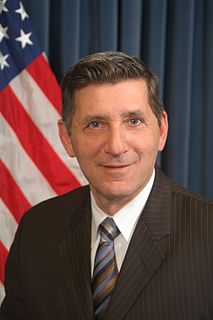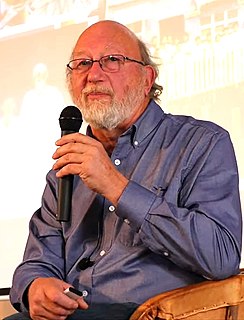A Quote by Stephen Jay Gould
Our current drug crisis is a tragedy born of a phony system of classification. For reasons that are little more than accidents of history, we have divided a group of nonfood substances into two categories: items purchasable for supposed pleasure (such as alcohol), and illicit drugs.
Related Quotes
I think the scariest addiction on this planet is to alcohol. Because alcohol is a very addictive drug, and it ruins families, it ruins relationships. And it is socially acceptable, and it is easy to find. Controlled substances, other drugs are more difficult to get, and it's a crime to... to buy them. But alcohol is everywhere. And if you are unfortunate enough to become addicted to it, it can be disastrous. And there is still a stigma attached to alcohol addiction, or addiction in general. It is perceived as... an addict is perceived as somebody of weak moral fiber
It would be hard to find a single example in history in which a group that cast more than 50 percent of the vote got away with calling itself the victim... Women are the only 'oppressed' group to share the same parents as the 'oppressor'; to be born into the middle class and upper class as frequently as the 'oppressor'; to own more of the culture's luxury items than the 'oppressor'.
My history of moving away from drugs is not the kind you hear from most people. Certainly not from celebrities, especially those professionally recovering people. What I've noticed in my overuse of cocaine is the period of pleasure versus the period of pain. That is to say that when you first get high on anything, the pleasure is predominant and you don't pay much price. A little hangover or whatever it might be with another drug. But after a while the ratio begins to change, and there' s far more pain in the deal than pleasure. It just completely goes in another direction.
Drug and human traffic are getting a lot more attention than illicit wildlife trafficking. And just as we need to intensify our efforts to combat drug trade and human trafficking, we also need to intensify our efforts to combat illicit wildlife trafficking...They all need to be addressed through bold and consistent actions by the international community.
Drug companies spend more on advertising and marketing than on research, more on research on lifestyle drugs than on life saving drugs, and almost nothing on diseases that affect developing countries only. This is not surprising. Poor people cannot afford drugs, and drug companies make investments that yield the highest returns.
Some social scientists say that in-group/out-group biases are hard-wired into the human brain. Even without overt prejudice, it is cognitively convenient for people to sort items into categories and respond based on what is usually associated with those categories: a form of statistical discrimination, playing the odds.
There are some forty-five thousand items in the average American supermarket and more than a quarter of them now contain corn. This goes for the nonfood items as well: Everything from the
toothpaste and cosmetics to the disposable diapers, trash bags, cleansers, charcoal briquettes, matches, and batteries, right down to the shine on the cover of the magazine that catches your
eye by the checkout: corn.
The war on drugs has been the engine of mass incarceration. Drug convictions alone constituted about two-thirds of the increase in the federal prison population and more than half of the increase in the state prison population between 1985 and 2000, the period of our prison system's most dramatic expansion.
The federal war on drugs is a total failure... The federal government's going in there and overriding state laws... Why don't we handle the drugs like we handle alcohol? ... I fear the drug war because it undermines our civil liberties. It magnifies our problems on the borders. We've spent over the last 40 years a trillion dollars on this war and - believe me - the kids can still get the drugs. It just hasn't worked.





































